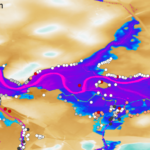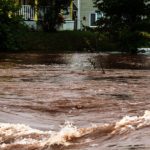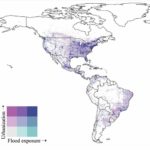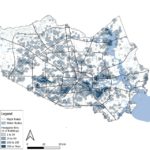Why and when do floods and extreme wind occur together? Will climate change make this happen more frequently? New research led by Dr Hannah Bloomfield and Fathom’s Chairman Prof Paul Bates sets out to better understand the correlations between flood and wind extremes, and the impact they have on risk.
Want to learn more about Fathom’s Chairman, Professor Paul Bates?
The two hazards that have the most severe impact during the winter in north-western Europe are flooding and extreme winds, and a single weather system can result in damage from both. One example is Storm Desmond in 2015, when thousands of homes and businesses in the north of England were flooded and more than 43,000 were left without power. While climate scientists widely acknowledge that flood and extreme wind events are closely related, the two hazards tend to be modeled separately in risk analyses. This makes mitigating and planning for co-occurrence a challenge.
The research: Understanding compound flood and wind extremes in Europe
The team used various datasets to investigate the correlations between flooding and wind extremes in the wintertime (October to March) at all timescales from daily to seasonal. They took Great Britain as an initial study area and extended the results to the rest of Europe.
The researchers analyzed historical data using meteorological reanalysis, hydrological models and river-flow datasets. They then analyzed climate projections at 12 km resolution to examine the effect climate change could have in the future.
To help them better understand the direct impacts of wind and rain damage on insurance losses, the team developed a new flood severity index (FSI) to be applied in conjunction with the storm severity index (SSI), which is widely used to measure potential storm damage.
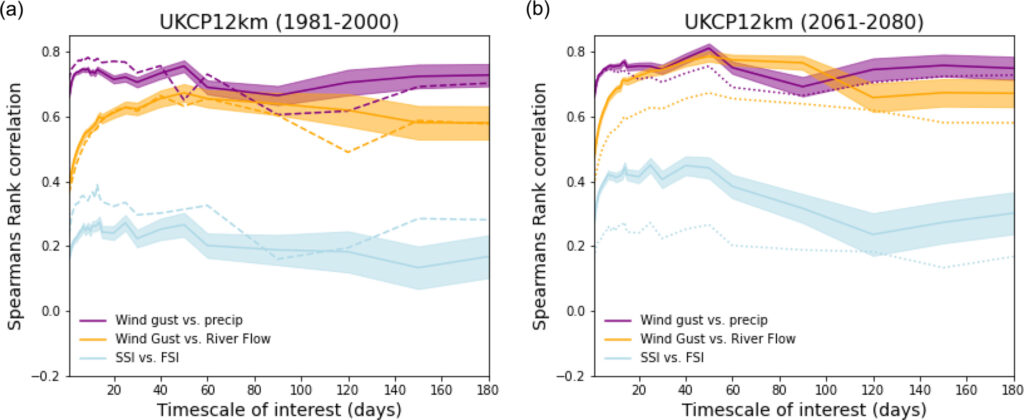

Key findings: Location and frequency
A number of key findings are outlined in the research paper.
The findings show that in Great Britain there were strong correlations between wind gusts and precipitation on all timescales, but correlations were lower between wind gusts and river flow and even lower when correlations between wind damage and flood damage were considered.
This differs widely between nations, most likely because the meteorological drivers vary from country to country. In Great Britain, on a daily timescale, the highest correlations are seen over GB and Ireland, probably due to their relatively isolated river networks. However, on seasonal timescales the highest correlation is seen over Spain and Portugal.
Finally, the research team found that in a future climate the most extreme flood and wind events (in the joint 99th percentile) will co-occur about three times more frequently than they do now.
Fathom’s commitment to open research
Supporting scientific advancement is one of the key reasons we prioritize the development of new research, which is published in open and leading academic journals. More research by Fathomers can be found in the list of references for this paper. Research includes:
- The spatial dependence of flood hazard and risk in the United States
- Extreme multi-basin flooding linked with extra-tropical cyclones
Webinar: Explore the impact of compound events
Catastrophic events often are not driven by one process. Extreme coastal floods can coincide with strong winds, or damage from extreme rainfall can be amplified when following a wildfire. However, typical catastrophe models rarely look at the probability and impact of multi-peril compound events.
This webinar will explore what compound events are, their drivers and how perils connected to generate extreme events.
When: 20 August, 2024



